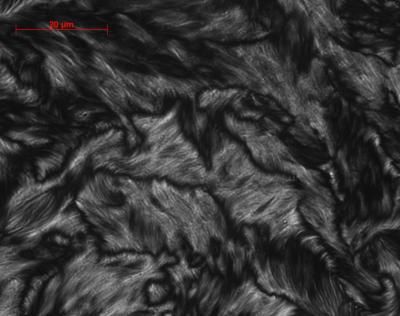Study Demonstrates Increased Sensitivity Of Rolling Circle Amplification Technology In Detecting Nucleic Acids On Microarrays
Advertisement
Molecular Staging Inc. (``MSI'') today announced publication of a paper in the November issue of Nucleic acids Research that describes the application of the Company's proprietary Rolling Circle Amplification Technology (RCAT(TM)) to detect nucleic acids on microarrays. The paper, entitled ``Signal Amplification by Rolling Circle Amplification on DNA Microarrays,'' outlines the benefits of RCAT as an on-chip signal amplification method. The distinctive properties of RCAT allow for multiplexing, or the ability to perform many assays simultaneously, without interference between the products of the amplification from each assay. This creates the opportunity for detecting both rare and abundant gene targets, while maintaining a high level of efficiency and specificity.
``There is a need for compatible signal amplification procedures to increase sensitivity without loss of multiplexing,'' stated MSI's Girish Nallur, Ph.D., lead author of the paper. ``The unique features of RCAT make it a suitable technology for the direct measurement of nucleic acids on microarrays without the need for a biasing preamplification step.''
The paper explains that, unlike other amplification procedures, RCAT eliminates the need for off-chip, solution phase preamplification steps, which are commonly associated with Polymerase Chain Reaction (PCR) amplification. These amplification methods are limited in their ability to detect nucleic acids simultaneously because the products of the amplification from each assay intermingle and interfere with each other, resulting in loss of amplification efficiency and specificity. Preamplification steps also greatly increase the cost of amplification procedures and can lead to sequence-dependent quantitation bias.
``The leading barrier to rapid market acceptance of microarrays has been their lack of sensitivity for highly multiplexed assays, particularly for new biomarkers,'' said MSI's Chief Operating Officer, Stephen Kingsmore, M.D. ``The enhanced sensitivity, multiplexing and dynamic range enabled by RCAT's on-chip amplification allows researchers to take full advantage of microarrays for the first time.''
The study observed that the amplification properties of RCAT enabled as few as 150 molecules bound to the surface of microarrays to be detected. This represents an 8000-fold increase in detection sensitivity over hybridization, under the same conditions. This level of amplification indicates that RCAT operates at near maximal efficiency in a microarray format.
Most read news
Other news from the department science

Get the chemical industry in your inbox
By submitting this form you agree that LUMITOS AG will send you the newsletter(s) selected above by email. Your data will not be passed on to third parties. Your data will be stored and processed in accordance with our data protection regulations. LUMITOS may contact you by email for the purpose of advertising or market and opinion surveys. You can revoke your consent at any time without giving reasons to LUMITOS AG, Ernst-Augustin-Str. 2, 12489 Berlin, Germany or by e-mail at revoke@lumitos.com with effect for the future. In addition, each email contains a link to unsubscribe from the corresponding newsletter.
































































